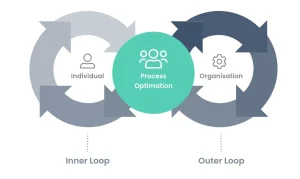In the quiet corners of our communities, behind closed doors and sometimes hidden from view, a silent tragedy unfolds – elder abuse.
For the elderly, these scars—etched by betrayal, neglect, or exploitation—can be just as devastating as physical injuries, lingering long after the bruises fade. It’s a heartbreaking reality that affects millions worldwide, leaving deep emotional wounds that often go unseen.
According to the World Health Organization (WHO), 1 out of every 6 elders has experienced some form of abuse in the past year. What’s even more shocking is the alarming rate of such abuse in long-term care facilities and nursing homes.
Today, we will explore the gravity of the psychological wounds that our elderly have to live with in the wake of elder abuse.
Understanding Elder Abuse
In the domain of caregiving and community support for our elders, elder abuse emerges as a dark threat. This complex issue takes various forms – physical, emotional, and financial – that can deeply affect the well-being of vulnerable seniors.
Elder abuse isn’t just a statistic; it’s a betrayal of trust and dignity. It can occur within families, caregiving facilities, or through scams targeting seniors’ savings. Each instance represents a breach of the respect and care our elders deserve in their golden years. TorHoerman Law notes that elder abuse is a harsh but prevalent truth in senior care facilities and nursing homes.
Take the case of the Addington Place of Edwardsville from April 2024, for instance. The senior living facility had employed Timothy Crisel, a 33-year-old from Granite City, as a caregiver.
On April 18, Crisel assaulted a 95-year-old resident of the facility by striking him hard enough to cause injuries. The abuse would never have seen the light of day if not for another sincere employee who came forward to report it.
If an elderly person you know or love is ever threatened similarly – be it at home or in a facility – you should do the same. Staying silent in the face of such abuse is as heinous as committing them. The right course of action in these situations is to file a personal injury lawsuit against the culprit.
For those who have little idea of lawsuits as in this case, an Edwardsville personal injury lawyer can assist you with it. They’re seasoned in dealing with such lawsuits and will ensure you receive the rightful compensation.
The Psychological Scars of Elder Abuse
Elderly abuse leaves not just physical marks but deep psychological scars that can transform a person’s psyche; sometimes permanently. While these invisible wounds might go unnoticed, they deeply affect the elderly’s emotional and mental well-being.
How Does Abuse Impact the Mental Health of the Elderly?
Imagine the turmoil of a senior constantly walking on eggshells, their trust in others eroded. Abuse shatters the mental health of the elderly, plunging them into a world of anxiety, depression, and fear.
This psychological trauma can lead to chronic stress, manifesting in insomnia, weight loss, and a constant state of alertness. The once vibrant and sociable people become withdrawn and suspicious, their joy in life replaced by a pervasive sense of dread.
The relentless mental strain can worsen their pre-existing health conditions and even trigger new ones, further compromising their overall well-being.
Does Elder Abuse Have Emotional Consequences?
The emotional consequences of elder abuse are heart-wrenching. Picture an elderly person who once found solace in family gatherings or community events, now feeling isolated and detached.
The emotional scars often include feelings of worthlessness and shame, as if the abuse were their fault. This self-blame undermines their self-esteem and can lead to severe depression. Socially, the elderly may withdraw from activities they once loved, avoiding contact with friends and family out of fear or embarrassment.
Recognizing Signs of Elder Abuse
Recognizing signs of elder abuse is like deciphering the silent cries for help amidst the complexities of aging and caregiving.
The root of elderly abuse often lies in a variety of factors, ranging from caregiver stress to alcohol or drug addiction. Even personal crises like losing a job or going through a tough time at home can lead some to resort to this unthinkable crime.
To help you recognize elderly abuse better and take necessary action, here are some telltale signs:
Physical Abuse
Visible wounds like unexplained bruises or fractures, especially with dubious explanations, raise immediate concern. Watch for situations where access to the elderly person is controlled or private conversations are curtailed, potential signs of manipulation.
Neglect
The absence of basic care—adequate food, shelter, or medical attention—is a stark indicator of neglect. Look for signs of poor hygiene, untreated medical conditions, or living conditions that compromise safety and well-being.
Interpersonal Dynamics
Observing interactions is crucial. Beware of caregivers who exert excessive control, dismiss the elder’s concerns, or isolate them from loved ones—a potential veil for manipulative or coercive behavior.
Financial Abuse
Financial exploitation can be as subtle as mysterious bank withdrawals or sudden property transfers. Aging people may voice confusion over missing funds or unexplained expenses, signaling possible exploitation of trust and vulnerability.
Behavioral Indicators
Changes in behavior, such as heightened anxiety or withdrawn demeanor, may hint at underlying abuse. Seniors might exhibit sleep disturbances, nightmares, or a loss of interest in activities they once cherished—a poignant reflection of their distress.
Emotional Abuse
The scars of emotional abuse are often hidden beneath masks of withdrawn behavior or sudden mood swings. The elderly may exhibit fear or reluctance to speak openly, particularly around caregivers or family members who wield emotional power over them.
Approaches to Healing Psychological Scars of Abuse in the Elderly
Healing the psychological scars of elderly abuse starts with compassion. As you prioritize the emotional and mental well-being of those affected, here are a couple of ways to help them heal:
How to Empower the Elderly?
Imagine a world where seniors are informed about their rights, aware of the signs of abuse, and equipped to take action. Education and awareness can transform this vision into reality.
Through workshops, community outreach programs, and media campaigns, you can enlighten seniors about their rights and the various forms of abuse. By doing so, you would be empowering them to recognize and report mistreatment confidently.
Picture an aging adult surrounded by a loving community, engaged in social and recreational activities, and participating in decision-making processes about their care.
Support networks play a pivotal role in this journey. For the elderly, maintaining connections with family, friends, and community groups can be a lifeline.
These networks keep a watchful eye to detect signs of abuse early on alongside providing emotional support. This involvement fosters a sense of purpose and self-worth, essential for healing.
Is Therapy A Solution to Consider?
Therapy is a cornerstone in the healing process for many abused seniors. Think of it as a pathway for them to understand and overcome the trauma they’ve faced.
Individual therapy offers a safe haven where aging adults can express their feelings, process trauma, and develop coping mechanisms. Visualize a senior in a warm, welcoming therapist’s office, sharing their burdens and finding solace and strength through conversation and guided reflection.
Group therapy adds another layer of healing, where elders connect with others who have faced similar challenges. In these supportive circles, they find a sense of belonging and shared resilience.
Imagine a family coming together in a therapist’s office, their bonds growing stronger as they navigate the healing journey collectively. Family therapy can mend fractured relationships, fostering better communication and trust within the family unit.
Recognizing elder abuse demands sensitivity and keen observation, navigating through the silent struggles of those who may be unable or afraid to speak out. But once you’ve figured it out, it’s essential that you take steps to help them heal from its scars, both physical and psychological.











